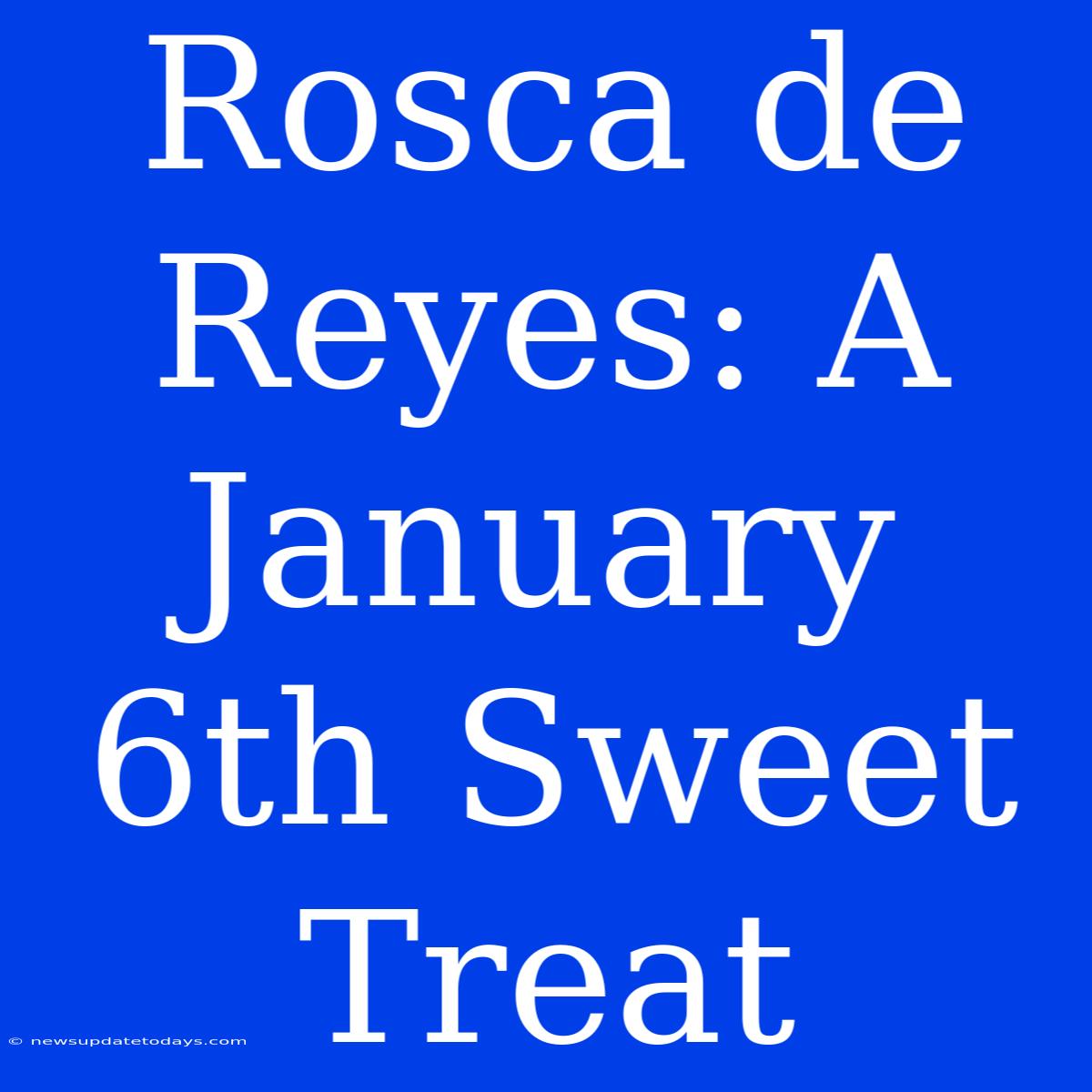Rosca de Reyes: A January 6th Sweet Treat
The aroma of sweet bread, a hint of orange blossom water, and the thrill of finding a hidden figurine – this is the magic of the Rosca de Reyes, a beloved tradition celebrated across Mexico and parts of Latin America on January 6th, the Epiphany. This article delves into the history, symbolism, and deliciousness of this iconic sweet bread.
A History Steeped in Tradition
The Rosca de Reyes, meaning "Ring of Kings," is far more than just a delicious pastry. Its origins are rooted in the biblical story of the Three Wise Men, or Reyes Magos, who journeyed to Bethlehem to bear gifts to the baby Jesus. The circular shape of the bread symbolizes the unending cycle of life and the crown of the three kings.
The tradition itself is a captivating blend of religious observance and festive celebration. Families and friends gather to share the Rosca, a symbolic act of unity and shared joy. The hidden figurines (typically baby Jesuses) within the bread add an element of playful anticipation and excitement.
The Symbolism of the Rosca
Each element of the Rosca de Reyes holds symbolic meaning:
- The Circular Shape: Represents the cyclical nature of life and the unending love of God.
- The Candied Fruits: Often represent jewels, symbolizing the richness and abundance of the gifts offered to the baby Jesus.
- The Hidden Figurines: Represent the baby Jesus. Finding one signifies a special blessing and responsibility.
The Sweet Taste of Tradition
The Rosca de Reyes itself is a symphony of flavors. The soft, slightly sweet bread is typically infused with orange blossom water, providing a delicate floral aroma. Candied fruits, such as cherries and crystallized citrus peels, add a vibrant touch of color and sweetness. Some versions incorporate nuts, creating a richer, more complex flavor profile.
The Tradition Continues
Finding a figurine in your slice of Rosca de Reyes isn’t just luck; it's a responsibility. According to tradition, whoever finds the figurine hosts a Día de la Candelaria celebration on February 2nd, preparing tamales or atole for family and friends. This secondary celebration further extends the festive spirit of the Epiphany.
Making your own Rosca de Reyes
While purchasing a Rosca from a local bakery is a delightful experience, many home bakers take pride in creating their own. Numerous recipes are readily available online, ranging from simple to elaborate. The process may seem daunting, but the reward of sharing a homemade Rosca with loved ones is immeasurable.
Conclusion
The Rosca de Reyes is more than just a delicious bread; it's a cultural treasure, a symbol of unity, faith, and the joy of shared celebration. Its enduring popularity reflects its ability to bridge generations and bring people together around a table filled with the sweet taste of tradition. So, if you have the opportunity to partake in this unique culinary and cultural experience, don't miss it! The sweet taste of history awaits.

